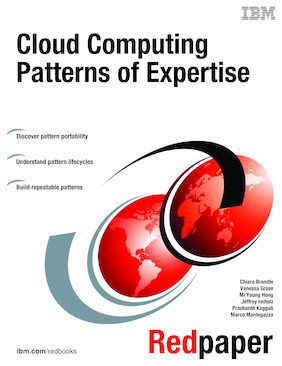Abstract
This IBM® Redpaper™ publication explains the business and technical value of emerging patterns of expertise in cloud computing, with specific applicability to IBM PureApplication™ System, IBM Workload Deployer, IBM SmartCloud® Orchestrator, and IBM SmartCloud Application Services. It explains how patterns help companies use the different cloud environments that IBM offers. Also included are some preferred practices for helping to ensure pattern portability.
The pattern-based approach is a response to the need to reduce complexity in IT environments, where various skills are required to design, test, configure, and maintain integrated solutions, including clouds. IT managers spend most of their time maintaining applications and application environments, leaving little time to focus on new business needs or to adopt new technologies. As a result, businesses can lack the agility that is needed to be successful in fast-paced, competitive markets.
Pattern of expertise are designed to deliver the following benefits:
- Faster time-to-value
- Reduced costs and resource demands
- Fewer errors and, therefore, lower risk
Patterns make full use of the unique nature of clouds, both private or public. When they are used in the cloud, patterns allow for the dynamic and efficient use of IT resources to achieve consistent results, even when complex solutions are built. In this way, patterns help save time, money, and resources.
This Redpaper aims to show the value that patterns bring to IT managers and the business as a whole.
Table of Contents
Chapter 1. Introduction
Chapter 2. Pattern design
Chapter 3. Pattern deployment
Chapter 4. Pattern lifecycle
Chapter 5. Pattern portability
Chapter 6. Case studies
